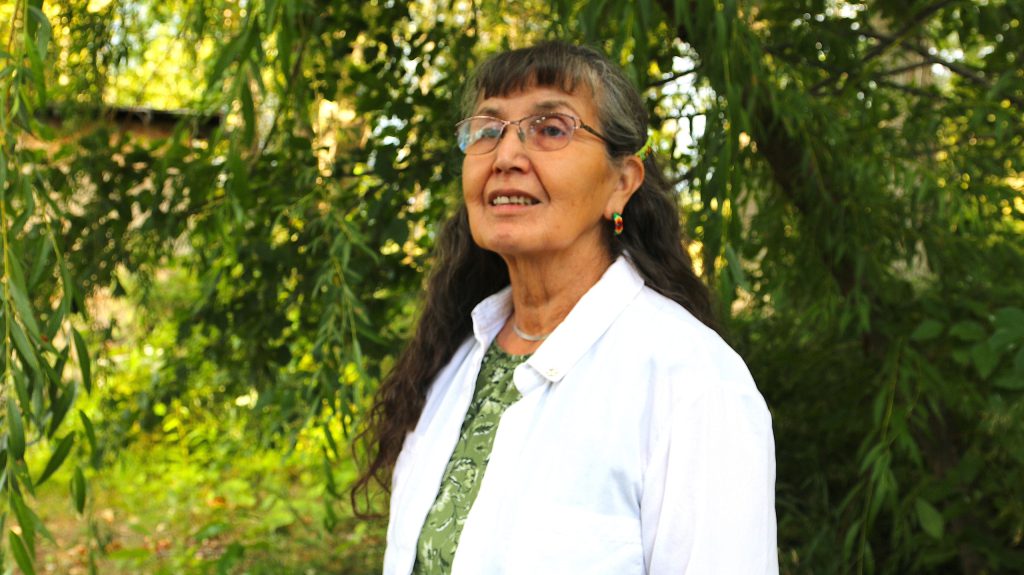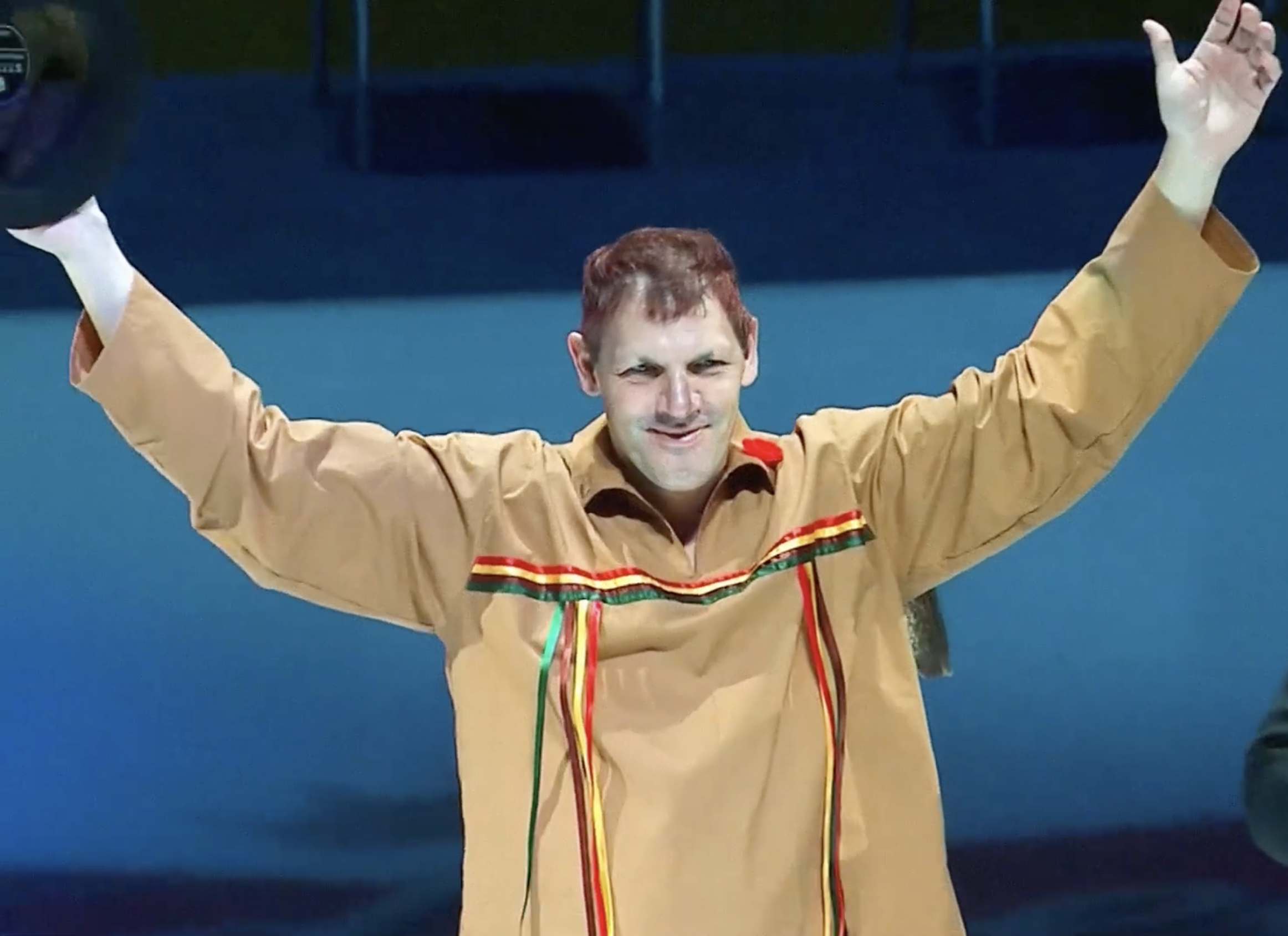Responding to climate crisis means restoring good relations with land, say Indigenous experts
syilx Okanagan scholar Jeannette Armstrong and Māori scholar Christine Winter shared knowledge during a panel discussion at UBC


Responding to the climate crisis must include restoring relationships with the land and listening to Indigenous people, two experts said during a talk at the University of British Columbia (UBC) last week.
These concepts and more were presented during a panel discussion on shaping climate justice through Indigenous knowledge featuring syilx Okanagan scholar lax̌lax̌tkʷ Jeannette Armstrong and Māori scholar Christine Winter at UBC’s Centre for Climate Justice on March 25.
The presentation, moderated by centre co-director Naomi Klein, included frank discussions around the effects that the climate crisis is having on Indigenous and frontline communities, and how climate change is a symptom of bad relationships — bad relationships between people, and between people and the planet.
Winter said that solutions can’t be found within a colonial system founded on a human-centred, individualistic worldview.
“In its place, I suggest that to understand anything — climate injustice included — we need to know its relationship and where it fits into the world. And then, we can start setting those relationships right.”
From the Māori worldview, she said that in order for something to exist or to be, it requires knowing who, what and how it is related to something else.
“Individuals are understood to thrive in the context of relationships,” said Winter. “Good relations allow the individual to blossom, not the other way around.”
After giving a brief history of how atmospheric rivers, landslides, wildfires and droughts have impacted Indigenous communities across “British Columbia” in the last five years, Armstrong said that climate justice demands that frontline communities be fully engaged in solutions-making about mitigating and cleaning up the harms of climate change.
“However difficult that may be, in policy and action-making, it is we the people that have to make those actions happen. Because we will be seeing more frequent climate-related disasters with its increasing social inequalities, and crippling social justice related to shelter, to food, to livelihood,” said Armstrong.
“There will be more and more people suffering — not just Indigenous people.”
She shared the words of Eriel Deranger, the executive director of Indigenous Climate Action, who said in 2021 that “the climate crisis cannot be addressed in any meaningful way without addressing its root causes — capitalism, colonialism and extractivism.”
“These are things that can be addressed by government. We know that,” said Armstrong.
She noted how governments can — and do — use their expertise to make changes when guided by Indigenous Peoples, their laws and their structures. But she highlighted how there is fear of empowering Indigenous-led climate action when it comes to change-making at the policy level.
“Fear of us having maybe a little bit of power, having a little bit of say so that we can make changes happen. Because the solutions in reducing the harms that are being worked out for people, are forced to work with us — forced to work with Indigenous people, and have to collaborate with them,” said Armstrong.
“They’re seeing benefits, they’re seeing success. They’re seeing things that work in different ways than they ever thought about.”
She pointed to earlier this year, when “B.C.” suspended talks around making amendments to the B.C. Land Act, which would’ve allowed shared decision making with Indigenous Nations over land use in the province.
“Solutions and sharing the burden of climate injustice effects have to find ways to be actualized, and led by the people with Indigenous lens,” said Armstrong. “And with unceded territories, here in B.C., what does unceded territory mean, if not that?”
The change in involving Indigenous governments in policy-making of land use and climate justice can still happen, she said.
“The shift that seems to be difficult can happen with good heart, goodwill and understanding that we have to take a chance to do things in a different way,” she said.
“We have to have the courage to do that in a different way than we have before.”
She said that the land back movement is about returning to creating good relations with the land and re-Indigenizing the planet, where everyone must find a way to support living things around them rather than commodifying them.
“And then they can’t help but change their economics, their government systems and so on. I think we’re on the very edge of that, because it is happening with people,” said Armstrong.
Her comments built off Winter’s thoughts around how our relationship with the land should be one of responsibility, not a one of ownership.
“What land back is actually about is good relationships. It’s about dismantling a system of bad relationships,,” said Winter.
“I don’t think that anybody is trying to suggest that we shouldn’t be able to have our homes and have an area that we feel comfortable in, that nurtures us, that cares for us. But it will require you establishing good relations with that land, good relations with all the non-human realm that lives with you on that land.”
When asked if the world is in a moment of transformation in the fight to lessen the climate crisis, Winter said that there have been two recent instances that have impacted her ability to say yes.
First, it was when “Australia” rejected a reform to their constitution last October that would’ve given Indigenous people a voice in parliament. The second was when “New Zealand” elected a conservative government that same month, which she said “figuratively ripped up any legislation that gave any sort of power to Māori and all the environment.”
“Those two events have filled me with distress,” she said.
Her hope lies in the young people that she teaches, she added — a sentiment shared by Armstrong.
“They are the ones — I hope — who will be able to forge the change that unfortunately we have not been able to,” said Winter.
“I am skeptical and I am hopeful.”
It is young people, the scholars especially, who Armstrong said are understanding that enough is enough when it comes to climate injustice.
“It won’t be our generation. But those of us that are there, that can stand with the young people as long as we’re standing, will be there,” said Armstrong.
“I think that gives me hope. That gives me a way to be able to continue doing this.”
Author
Latest Stories
-
‘Bring her home’: How Buffalo Woman was identified as Ashlee Shingoose
The Anishininew mother as been missing since 2022 — now, her family is one step closer to bringing her home as the Province of Manitoba vows to search for her
-
Book remembers ‘fighting spirit’ of Gino Odjick, hockey’s ‘Algonquin Assassin’
Biography of late Kitigan Zibi Anishinabeg left winger explores Odjick’s legacy as enforcer in the rink — and Youth role model off the ice
-
St. Augustine’s survivor hopes for closure after evidence of 81 unmarked graves released
50 years after the residential ‘school’ closed, shíshálh Nation announces evidence of many burial sites. A Tla’amin Elder wonders how many more children died













